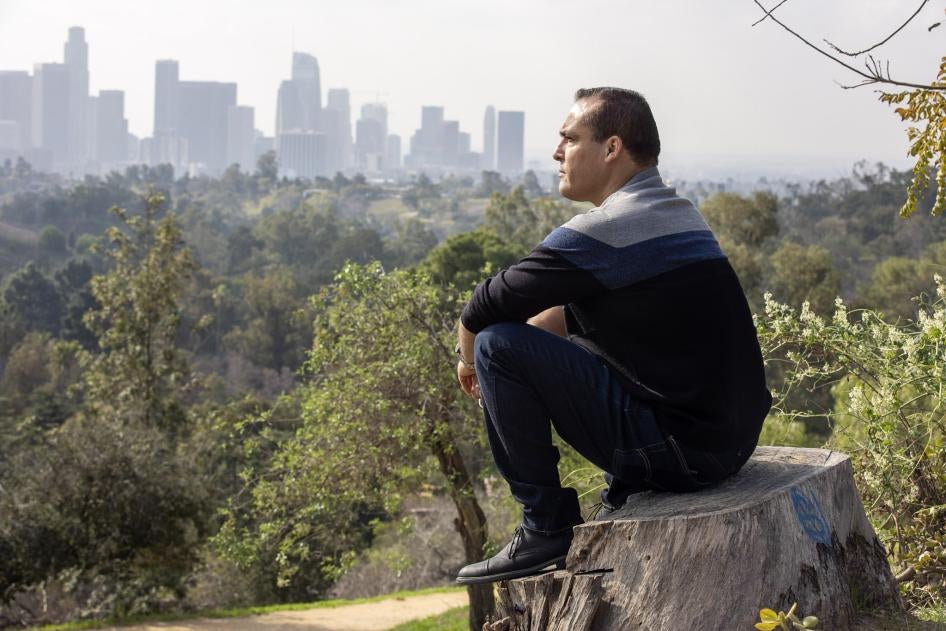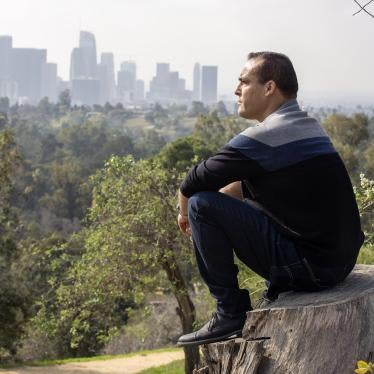(Los Angeles) – A new website features accounts of how people who were released after being sentenced to life in prison without parole have made new starts and contributed to their communities, the National Life Without Parole (LWOP) Leadership Council said today, inaugurating the website. BeyondLWOP.org provides data about the sentence, information about alternatives, as well as audio, video, and written stories of people who were formerly sentenced to life in prison without parole.
Life without parole is a sentence to remain in prison with no chance of release. Changes in some state laws have resulted in releases, though in most states they have been few. The National LWOP Leadership Council, a group of 14 advocates and community leaders from across the nation who were once sentenced to life without parole, created the website. They found that nearly everyone released has contributed to their communities, from volunteering with youth, to taking care of elderly relatives, starting businesses, and more.
“We’re people who have survived being sentenced to die in prison,” said Sheena Eastburn, a National LWOP Leadership Council member. “And that experience makes us want to work to end the use of LWOP.”
The group’s mission is about more than ending life without parole, though. “We want to help build a society that recognizes the human capacity for transformation and real accountability for harm that has been caused,” said Allen Burnett, another council member. “We want to create opportunities for healing and making amends.”
Life without parole sentences are virtually unheard of in the rest of the world. The United States holds 83 percent of the world’s population serving prison sentences of life without parole and is the only nation that applies the sentence to children, in complete disregard of international human rights standards. Racial disparity is prevalent: more than half of all people serving life without parole in the US are Black, although Black people make up less than 14 percent of the national population. The sentence denies people human dignity and hope, diverts resources from communities and treatment, and deprives society of meaningful contributions.
The website features dozens of people who once were sentenced to life without parole. It also challenges the idea that every survivor of crime only wants retribution. Several family members of murder victims agreed to contribute to the site. “I would champion anyone to come home as long as they are truly transformed,” said Trino, whose brother was murdered and whose full name, like some others quoted, is not used to protect his privacy. “I have seen the effective side of rehabilitation, and lives are truly being transformed because rehabilitation is being offered.”
A straightforward question for people released from the sentence is central to the website: What are you doing with your second chance? Nearly 50 people answered in a photo journal. “I am an urban farmer, a food justice advocate, and a cofounder of a nonprofit, Huma House,” said Tobias. “We cultivate gardens, but what we’re really cultivating is community.”
“I mentor troubled youth who are going through the same thing I went through,” Jawad said. “I teach them about peer pressure and gang violence.” Paul, another LWOP survivor, said: “I co-authored a piece of legislation that was passed by the Board of Supervisors in San Mateo County.” He hopes it will lead to better mental health services for youth.
BeyondLWOP.org offers information on the kinds of harm life sentences without parole cause to communities, shows where each state stands on its use of the sentence, and outlines effective alternatives. It also lists the services provided by the council.
“Having people with personal experience of life without parole at the forefront of reform efforts is extraordinarily powerful,” said Elizabeth Calvin, senior advocate at Human Rights Watch and a sponsor of the council. “The Council and other people formerly sentenced to life without parole offer compelling insight into the harsh realities and injustice of these sentences. Their journeys of resilience and change highlight the urgent need for a more just and humane approach to sentencing.







